WICKED: FOR GOOD (2025)
As an angry mob rises against the Wicked Witch, Glinda and Elphaba will need to come together one final time.
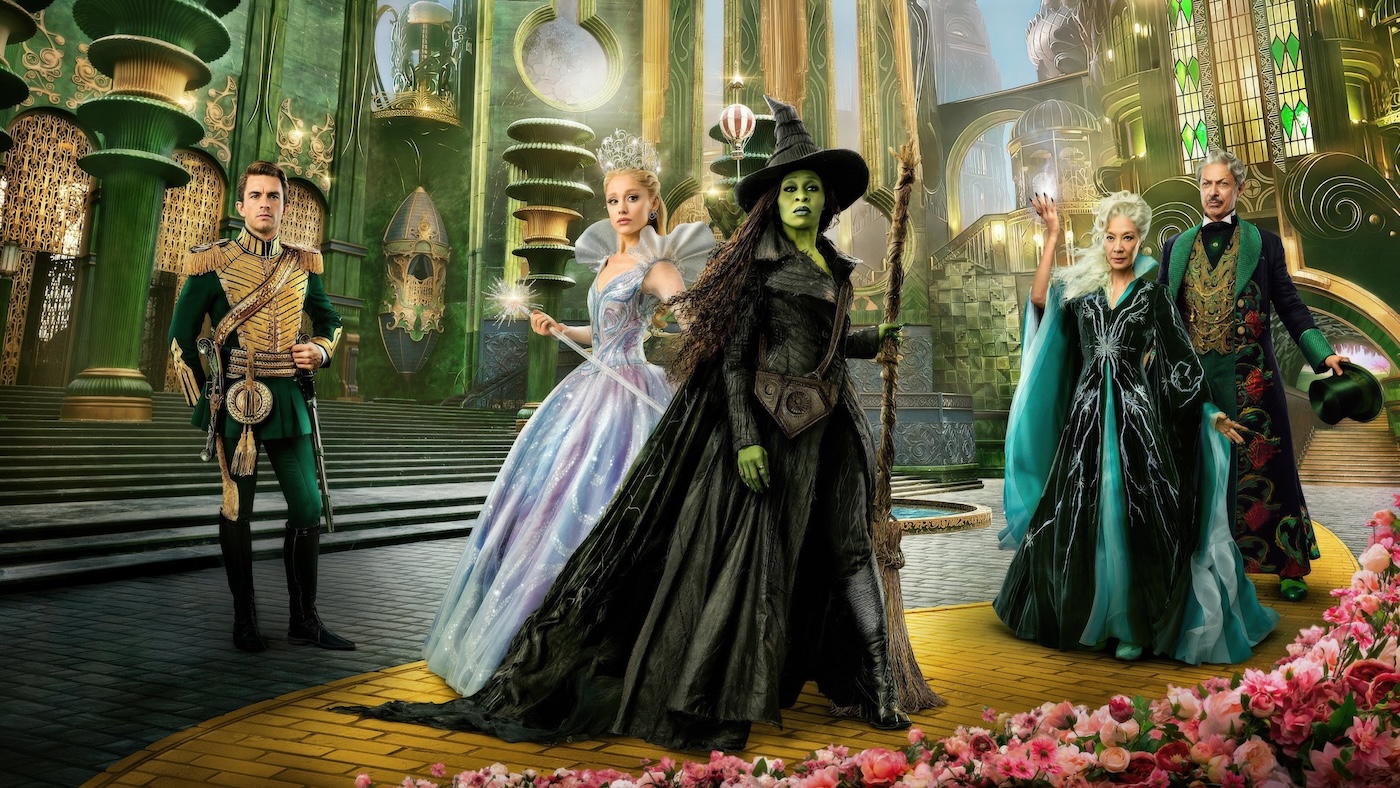
As an angry mob rises against the Wicked Witch, Glinda and Elphaba will need to come together one final time.

Just over a year after Wicked (2024) was released to positive reviews and widespread fanfare, its sequel, a reimagining of the second act of the musical it was adapted from, has now seen the light of day. Time has been kind to the decision-making behind Wicked; while it was rather controversial to split the adaptation into two movies, Wicked: For Good is already on track to be a giant box office hit after a $150M domestic opening weekend. A year has proved remarkably little time in retaining audiences’ interest in the escapades of Elphaba Thropp (Cynthia Erivo) and Glinda Upland (Ariana Grande), two polar opposites who have remarkably different upbringings and outcomes in life, yet are bound together by a deep friendship.
Unfortunately, this year-long gap makes it difficult to sink into this story when it is far more serious and self-important than the original film. I can remember the wider plot, and even some of the small details of Wicked, but the sense of wonder that the film evoked has been gradually lost. It doesn’t help that Wicked: For Good has no interest in reviving this cinematic magic, since it starts up at the point where Elphaba has gained a totally unwarranted reputation as the Wicked Witch of the West. For all of the dreaming Elphaba afforded herself in the original film in the face of her tragic upbringing, such an outcome appears fated. But when it finally happens, it hardly feels tragic, just inevitable.
What made Wicked a surprisingly stirring experience was how it snuck in its emotional residue through the filter of a high school rom-com (despite being set in a university), with heavy emphasis on comedy whenever Glinda was on screen. The privileged, dainty, totally oblivious princess-to-be was portrayed masterfully by Grande, with none of her frequent physical comedy hitting a false note. The starry-eyed visions of both protagonists were hilarious and heart-warming to behold when paired alongside one another, and while their enemies-to-best-friends arc might have been predictable, it was thoroughly entertaining throughout.
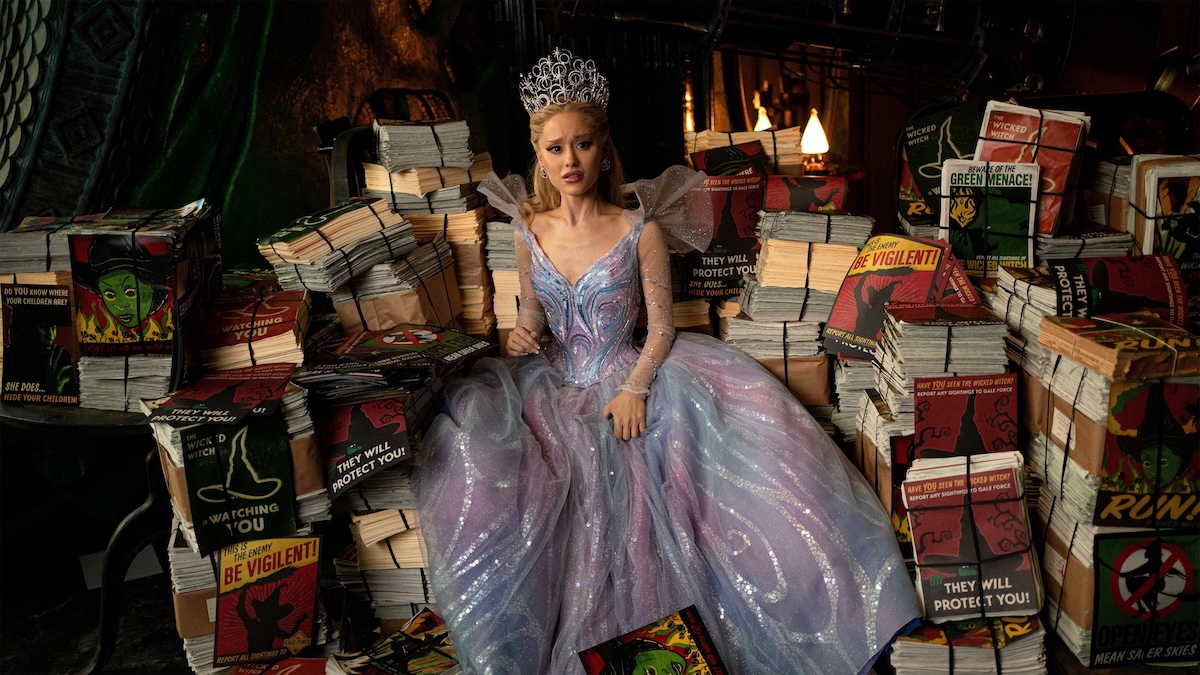
This fantastical high school format was the film’s saving grace, imbuing its moments of passion, pity, hatred, and empathy with the urgency required to make them soar. Its heightened emotions keenly mapped onto the emotional reality of these teenagers, where new experiences and first loves could inspire joy and torment stronger than anything they had experienced thus far. The latter hour of Wicked was comparatively weaker, where the world-building elements reigned supreme as cracks began to form in this candy-coloured spectacle. Once the sense of whimsy was removed as the story entered explicitly dramatic territory, it was easier to notice how garishly bright these backdrops appeared, or how the emotional experience became diluted as the story strained to hit its required plot beats.
That perfunctory feeling is carried over into Wicked: For Good and never leaves, lingering like a bad smell. Despite being over 20 minutes shorter than the original film, its runtime becomes rather punishing by its back half. Despite this, there are plot beats and character developments that are sped through at such a brisk pace that there’s no room to sit with the emotions underpinning them. After Elphaba becomes the ultimate symbol of evil for the people of Oz, her sister Nessarose (Marissa Bode) is embittered, taking out her frustrations on her Munchkin boyfriend, Boq Woodsman (Ethan Slater). Their romance was a very gradual and heart-warming build-up in the first film. Its dissolution, where he effectively becomes her servant thanks to legislation that discriminates against people of his kind, is breezed through in a few short scenes.
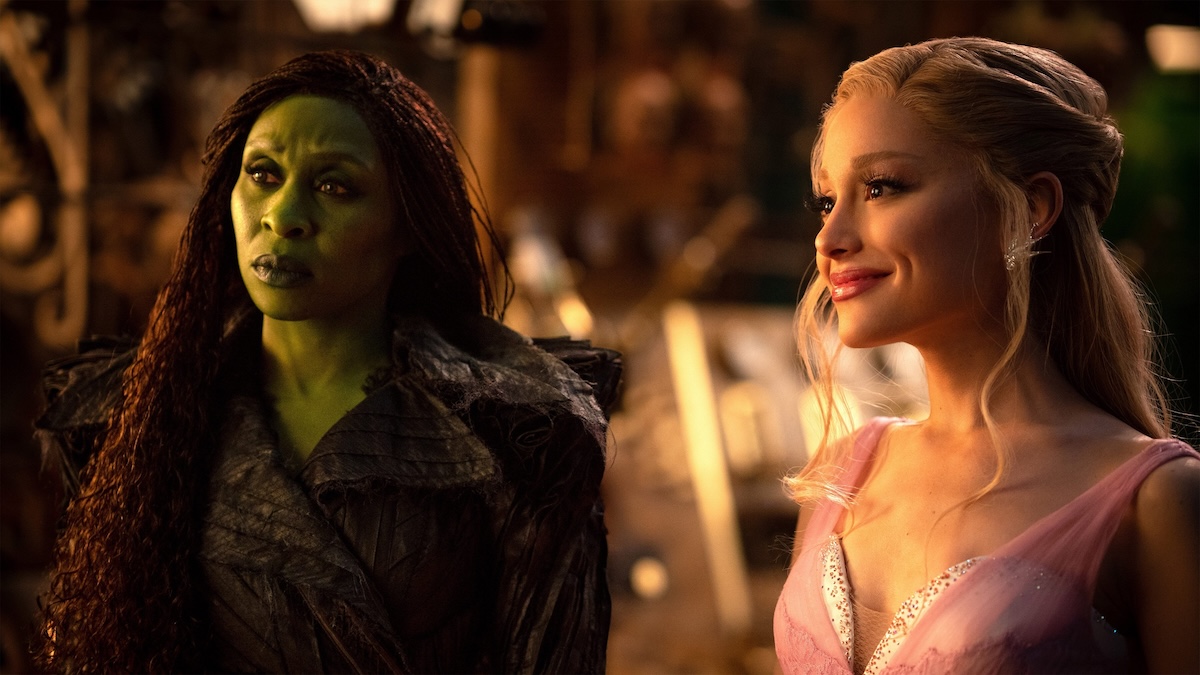
Wicked: For Good, understandably, puts itself in a bind regarding the widespread discrimination that befalls the animals and Munchkins, since you can only do so much with CGI animals. But Boq was the perfect representation of an innocent, well-meaning, disenfranchised soul who has his identity crammed into a box that strips him of self-belief or love. I can’t profess to say that this development would have ever constituted a tear-jerker plotline, but it at least could have put a compelling, non-CGI face to the film’s political slant. By grounding it in the suffering of a single character, it could have effectively communicated this message to children and adults alike. But Boq, easily the most poorly developed of any character here, is done as much a disservice by this film as he is by the Kingdom of Oz and Nessarose.
There is so much emphasis on Wicked: For Good’s big, showy musical numbers—none of which resonate with the same degree of passion as the previous film’s songs—that the ways these characters develop outside of the musical sections is given little consideration. The humour is nearly non-existent, since these characters have greater concerns now, but those are not ever illuminated in meaningful ways. It’s no surprise that there’s a general consensus among fans of the musical that its second act is inferior to the first, with this sequel falling short of its predecessor’s splendour.
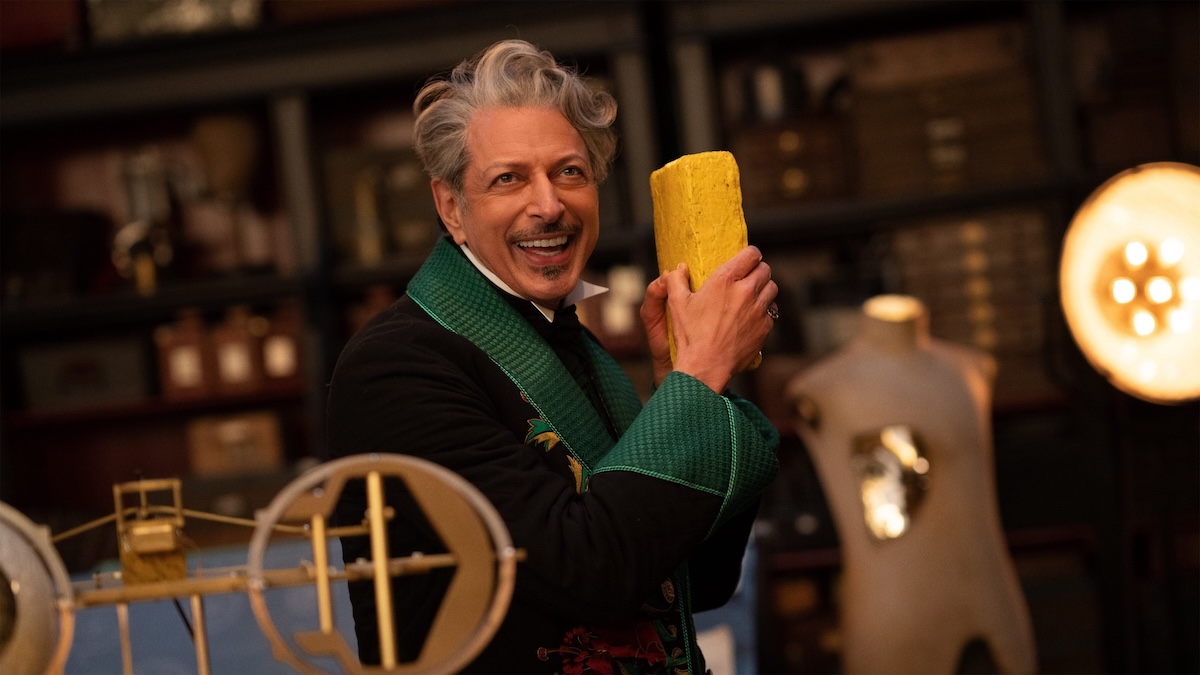
Despite the insistence in Wicked: For Good’s latter half on the remarkable connection forged between Elphaba and Glinda, and how tragic it is that these two friends find themselves forced apart, there’s little chance for feeling amidst these grand sequences. These characters can no longer dream big, since they’re now living in a dream world or a nightmare instead of having to imagine their fate. This takes any sense of wonder out of the story, but more importantly, it never adds anything crushing to the mix. Tragedy is too lofty a dramatic goal for the Wicked film universe, especially when it earned its acclaim by endearing viewers to its frivolous rom-com thrills, through which its tender notes gradually blossomed. Nothing blossoms in Wicked: For Good; it’s just shouted in sing-song.
That is not to say that these creatives have suddenly dropped the ball; the acting quality is exactly what you would expect from the previous film, which was largely stellar. Erivo and Grande are still the highlights, as ever, while director Jon M. Chu never gets too lost in this CGI-fest to forget about these characters and their emotions; he just isn’t very effective at making viewers care about them. Michelle Yeoh, who portrays Madame Morrible, the former Dean of Sorcery at Shiz University, is as dreadful as she was in Wicked. This time, however, she also sings on more than one occasion, and I take no pleasure in reporting that it is just as disappointing as her acting. It’s a strange experience to witness a talented performer put forth a performance entirely without redemption, especially when her portrayal of a fraying, downtrodden woman in Everything Everywhere All at Once (2022) presented some of the finest acting of this decade. But the talent behind such a performance is unrecognisable here, from flat line delivery to a middling singing voice.
All of the first film’s passion is just as evident in this sequel, only it never finds the proper means to funnel it into a worthwhile emotional package for viewers. Even when the film is flooded with sincerity and grandiosity it still feels as if it is going through the motions, where not even Grande or Erivo’s performances can liven up the experience. Like the original film, it is at least competently crafted, with each technical element remaining largely unchanged, but the soul and verve of the experience is lost.
USA • CANADA • AUSTRALIA | 2025 | 137 MINUTES | 2.39:1 | COLOUR | ENGLISH

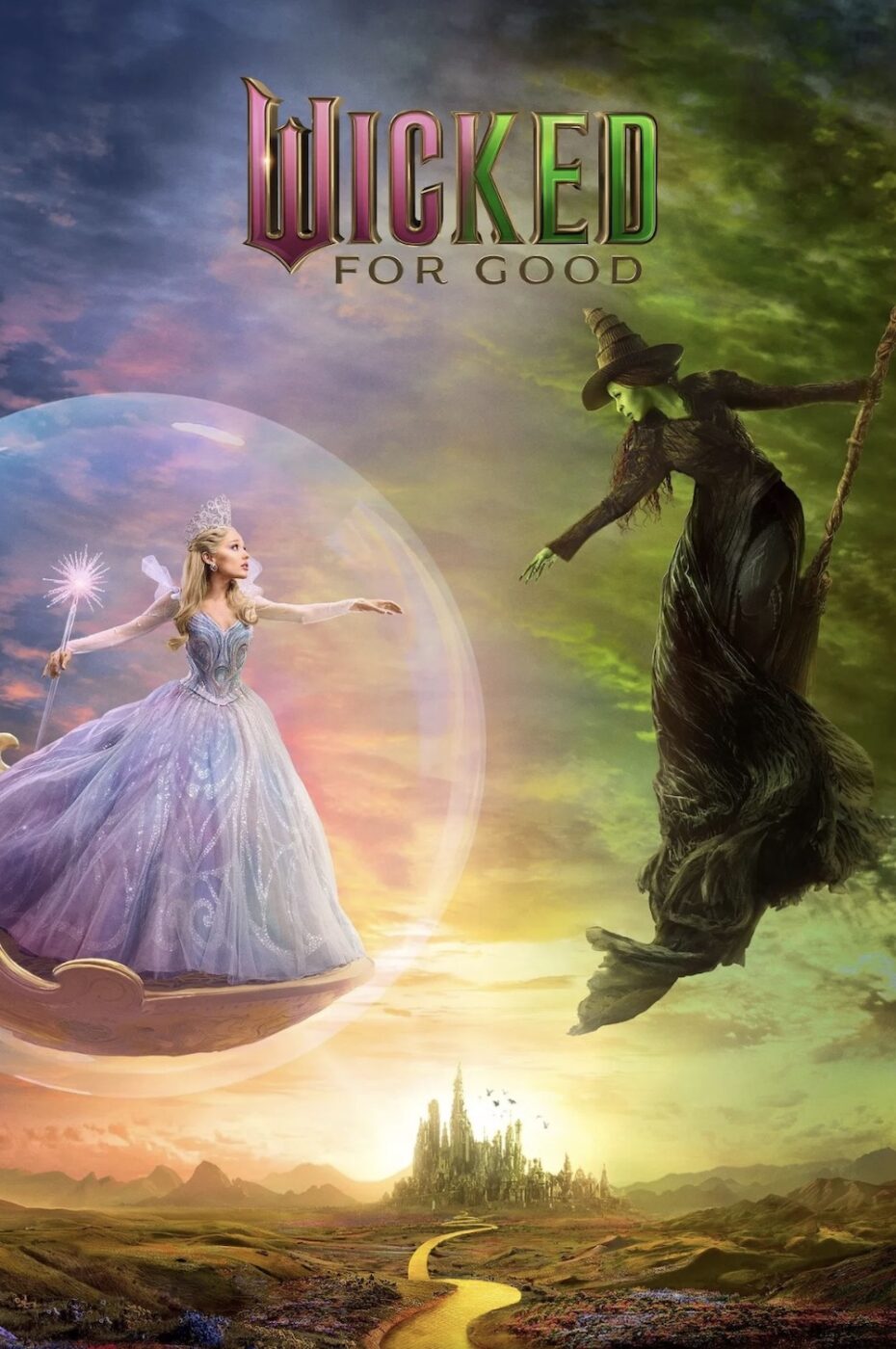
director: Jon M. Chu.
writers: Winnie Holzman & Dana Fox (based on the stage musical by Stephen Schwartz & Winnie Holzman, itself based on the novel by Gregory Maguire).
starring: Cynthia Erivo, Ariana Grande, Jonathan Bailey, Jeff Goldblum, Ethan Slater, Marissa Bode, Michelle Yeoh, Colman Domingo & Sharon D. Clarke.
